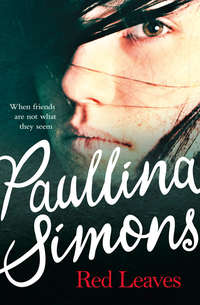
Полная версия
A Beggar’s Kingdom
Julian is nearly unconscious. Yet the mention of being soaped by the caressing hands of the lush sirens in his bed calls him to attention and turns the girls once again into warm quivering masses of excited and groany giggles—
The bedroom door is thrown open. The giggling stops. In the frame stands a tall woman wearing yesterday’s theatrically overdone face makeup and an outrageous pink velvet housecoat with a red fringe.
“Mallory!” she shouts. “How many times have I told you—No! Bad girl! No, no, no, no, no!”
One of the girls scrambles off the bed and searches the floor for her clothes.
“This isn’t your job! Do you know what your job is?”
“Yes, Aunt Tilly.”
Julian nearly cries. Don’t go, Mallory! Her back is to him, but if only he could catch a glimpse of her face …
“No, I don’t think you do know what your job is. And it’s Baroness Tilly while you’re working—and I assume this was work?”
“All my other work was done, Baroness.” The girl throws a chemise over herself, a skirt, a flowy blouse, an apron. She ties up her hair. “I was finished for the day.”
“You don’t look as if you were finished.”
“Just wanted to make some extra money, Baroness …”
“That’s everybody’s excuse. But you know I forbid it. Your mother, may she rest in peace, forbid it. I will not tell you again. I’m going to send you to the South of France if you don’t stop this. Do you want to be sent away with your boorish benefactor? He’ll be a lot stricter than me.”
“No, Baroness.”
“I didn’t think so. Then, go do what you’ve been hired to do and stop the wickedness at once. Oh—and who is this man? I allowed you upstairs at the start of the night for the viewing pleasure of Lord Fabian, and here you are, at nearly dawn, with another man in your bed.”
Viewing pleasure? Lord Fabian? What? Julian lifts his head off the pillows. Baroness Tilly, a broad, vulgar woman, turns her unwelcome attention to him. “I don’t remember you walking past me, good sir, and I certainly don’t remember you paying me. No one goes upstairs with my girls without me knowing about it. Announce yourself! Mallory, Margrave, who is this man?”
Still in bed with Julian, Margrave, a most unblushing flower a few minutes earlier, gets tongue-tied. Her brazen demeanor vanishes. She stammers.
The standing girl comes to his aid. “I believe he said he’s here for the position of the keeper of the house, Baroness. Aren’t you, sire? He came from the Golden Flute across the river. Madame Maud sent him.”
“So why is he up here with you? Why didn’t he speak to me first if Maud sent him?”
“He wandered in and got lost, he didn’t see you.”
“Oh, enough! There’s clean-up needed in Room Four. Golden Flute indeed. I am so tired of your nonsense, Mallory, so very tired.”
Mallory rushes past the hyperventilating baroness. Margrave covers Julian with a quilt. He finds it fascinating that she remains uncovered as if it’s only his modesty she is concerned with.
“Margrave, don’t sit there like a wanton hussy, get dressed. It’s morning. What is your name, sir?”
“Julian Cruz.”
“Well, Master Cruz, this is not the way I usually make the acquaintance of the keepers of my house. Did you need to sample the product before you could hawk it? I admire that. We have only the best here, sire. These are not the usual wagtails and bunters you’re used to at the Golden Flute, I can assure you.”
Julian doesn’t need to be assured. He knows.
“Our old keeper died last month without any warning. A little warning would’ve been so helpful. It would’ve given me and the girls time to prepare. This is a house run nearly entirely by women and there are things we do well, wouldn’t you agree, Master Cruz?”
Julian would agree.
“But there are other things we cannot do. Fix doors, patch holes, replace broken lanterns, fix the roof. We have lanterns that have not been filled with oil because Ilbert refuses to buy some, and the candles are running low, as is the soap. After the recent health problems, soap is an absolute necessity. We’re quite busy here. I hope you can manage. Marg, go tell Mallory to prepare the gentleman’s room, and you, sir, meet me downstairs as soon as you’re attired.” (Attired in what exactly, Julian wants to know.) “I’ll go over the rest of the details, and we’ll raise a glass. Margrave—spit spot.” With that, Baroness Tilly claps her hands twice, and exits.
As soon as she’s gone, Margrave jumps out of bed.
“We could’ve got into so much trouble,” she bleats, tying the sashes of her robe. “The Baroness hates it when Mallory disobeys. Not that she does anything about it, the girl is a terror.” She smiles. “But who could resist you? Even heartless Mallory couldn’t. Wait here, I’ll be right back with a robe. You should ask the Baroness for an advance, go buy yourself some clothes befitting a brothel keeper.”
“What do they wear, tuxedoes?”
“If you like, sire. Forever naked would be my preference.” Beaming, she straightens out, and Julian catches her eye. It’s dawn, he can see her smiling round face. She is pretty and young and sexy. Low light, a tired mind, lust, pounding desire are all great equalizers.
But Margrave is not his girl.
4
Keeper of the Brothel
THE ALE IS A COVER. ALE FOR BREAKFAST, ALE FOR DINNER, ale for supper. It’s a euphemism for the other things that go on at the Silver Cross. Yet downstairs, the wood-paneled restaurant-bar appears as just that: a well-to-do tavern, patronized by connected and wealthy men (much as in the present). The ale is top-notch, Baroness Tilly tells him, the food superb.
Naked underneath a black velvet robe, Julian sits across from the Baroness, feeling ridiculous. Tilly’s pink robe has been replaced by hooped petticoats and gaudy layers of sweeping silk ornamental fabrics with puffy sleeves and lace velvet collars. She wears a huge blonde wig, her eyes hastily drawn in black and her oversized mouth made ever larger by smeared red cake-paint.
The pub is narrow and tall, with flagstone floors and tables of heavy oak. It’s upholstered in leather, draped with blue velvet curtains, and set with crystal and fine china. The breakfast tables are lined with white napkins.
“It’s a beautiful place, wouldn’t you agree,” the Baroness says. After colorfully describing what’s expected of him (the daily inspections of the girls before they begin work is one of Julian’s more intriguing duties), she offers him a salary and only as an afterthought inquires about his experience, which he recounts to her just as colorfully—parroting her own words from minutes ago (taking extra time to detail how he imagines the inspections of the girls might go). He would like to begin immediately. Where are these girls? When can he inspect them, so he can find his girl?
He and the Baroness have a sumptuous breakfast of porridge and milk, smoked herring, spiced eel pie (“caught fresh from the Thames just yesterday!”) and bread and marmalade. And ale. The Baroness lingers over breakfast as if starved for some normal company, entertaining an increasingly impatient Julian with stories about the Silver Cross. A hundred years earlier, a man named Parson from Old Fish Street was paraded in shame down Parliament Street for selling the sexual services of his apparently accomplished wife. After spending years in prison, he opened the Silver Cross in revenge, and his wife became the cornerstone of his business.
Julian tells the Baroness he’s read somewhere that a prostitute was murdered in the Silver Cross, and it’s been haunted ever since.
“I don’t know nothing about that,” the Baroness says, frowning. “Where did you read that, the Gazette?” Grudgingly she admits that the Silver Cross has only recently reopened, having been shuttered for the better part of last year, “because of the horror that befell all London. But we’ve had no recent murders here, sire, I can assure you. Murder is very bad for business.”
“What horror?” Julian asks and instantly regrets it when she stares at him suspiciously. He clears his throat. “I meant why stay shuttered for so long?” His eyes dart around, trying to catch the date from the newspaper lying on the next table.
“Where are you from, good sir, that you don’t know about the terrible pestilence that destroyed our town?”
The unknown forest, Julian tells her. Wales. Largely spared from the plague. One of these days, Julian will meet an actual Welshman and be promptly pilloried on Cheapside.
“I thought you’ve just come from across the river?” She lowers her voice. “You know, that’s where the Black Death took wind. From south of the river.”
Julian nods. It’s common knowledge—everything is worse south of the river.
“It got so bad,” the Baroness says, “death galloped in such triumph through our streets that King Charlie himself had had enough. He packed up his court and fled the city! That’s how we knew we was all doomed. When our own king abandoned us. His Majesty’s Government didn’t meet for a year.”
Julian commiserates. In 1665, the plague had reduced London to a wasteland. He hopes it’s a few years later, the worst behind them. He tries to make out that elusive date on the newspaper. LONDON GAZETTE, it reads. PUBLISHED BY AUTHORITY. What year does it say?
“Yes, our once lively city has become a graveyard,” the Baroness goes on. “Nothing but a field of dismal misery. There was nothing open because there was no one alive.” She dabs her eye. “I’ll confess to you, sire, the plague has been absolutely terrible for business!”
“One hundred and thirty parishes in London,” Julian says. “Surely there are still men left. The bells still ring.”
“Oh, even more than before, because now they ring for the dead. But the dogs don’t bark. Because they’re also dead. Dead with all the honorable deep-pocketed gentlemen!” She sniffles.
Good God, what year is it? He squints at the Gazette, adjusts in his seat. “Does that say July 1666?” he asks, something inside him falling.
“Yes,” the Baroness says slowly. “Why?”
“The Silver Cross survived the fire?”
“What fire?”
“The one near Pudding Lane.”
“Pudding Lane? All the way down there by the bridge, inside the wall? I wouldn’t know nothing about that. I don’t go down there. We always have fires in London, good sir. Too many candles.”
“You’d know this fire,” Julian says pensively. “There won’t be a house left standing between Temple Bar and London Bridge. Pardon me, I’ve been traveling so long, I’ve lost track of my days.” Maybe he’s wrong about the year. He’s never been good with dates. What a failing to have when dates are of the essence. Cromwell, Puritans, beheadings, republic, Charles I, Charles II, when was the Glorious Revolution? Was the Great Fire of London before it or after? A little knowledge is an awful thing—
“It’s a Tuesday. Second week in July. We just finished the beer festival for the Feast of Saints.” The Baroness smiles. “That was very good for business.”
“I’m sure.” Julian shifts in his seat. “Can I get a small advance on my salary so I can buy myself a wardrobe befitting a tavern keeper? You said we needed fresh flowers. Perhaps I can take a walk to the market. Is Covent Garden open?” He wants to walk to Clerkenwell. He needs to see what’s become of the life he once lived with her.
The Baroness agrees to an advance. “Usually I send Ilbert to the market, but frankly, he has appalling taste in flowers. He always manages to get the ugliest ones. When you see Mallory, remind her to lend you something to wear. And tell her Gasper is here. The girl needs to be told everything three times. He’s been waiting an hour.” Gasper is a skeletal man in the corner by the open door, a stinking man in rags with flies buzzing around him, his head tilted and trembling.
As Julian walks up the main stairs, he hears the Baroness berating a humpbacked imp. “Ilbert,” she yells. “How many times must I tell you—it’s against the law to wash the entrails of pigs in the local waters!”
“I’m not the only one that breaks the laws, madam. The alley is slippery with refuse. It’s hard to carry the carcass to a less local water.”
“Oh, Holy Helpers, Ilbert, you are but an arsworm! You know Scotland Yard is next door! One of them clappers saw you. He told me you was throwing coal ashes right into Parliament Street. Have you no mind, scoundrel? We’re in front of the Palace of Whitehall, the residence of our king! You can’t keep breaking the laws of men.”
“But all the men is dead, madam. You said so yourself.”
“The few that are left will stone you to death, you scoundrel! I will celebrate when that day comes. Until then, stop mouthing off to me and go sweep the stones outside, as decreed by the Commissioner for Streets and Ways. And stop hooping the barrels on the sidewalk and sawing timber on the street. I can’t afford another fine because of you.”
“Where would you like me to saw the timber, madam? In the palace gardens?”
“You are an annoyance and a disorder, Ilbert, in desperate need of reforming. They will dispose of you with the ashes, dust and dirt, and I shall have nothing whatsoever to say about it except hallelujah.”

Tucked into a dormered corner on the second floor, on the other side of the house from his favorite room, Julian’s quarters are spacious and sunny. From his two open windows he can see the eastern Thames, curving toward Blackfriars, toward the direction of the slate-colored Globe, he can hear the bells of a hundred churches. His room has a four-poster bed with a heavy canopy, an intricately carved armchair, a walnut cupboard, a small table under the windows where he can eat or write, a wardrobe where he can hang his clothes once he gets some, and a washing station in the corner by the fireplace that includes not only a basin, but also a bathtub with a stone hearth. He could use a bath after last night’s steamy banquet. Perhaps the girls could come and wash him as they had so kindly offered.
In the desk he finds a quill with a bottle of ink. Julian remembers Devi’s instruction to count the days. Opening the bottle of ink, he dips the quill into it, pulls up the sleeve of his robe, and with the quill tip punctures the inside of his forearm, near his wrist, tapping a dot of ink into the wound. One.
When he turns around, a girl stands silently in the doorway, towels and sheets in her hands, her expression wary, her brown gaze on his arm. It’s Mallory.
“I can explain,” he says, putting the quill away.
“No need, sire.” He can barely hear her voice.
“I’m marking the days.” He steps toward her.
“Aren’t we all. May I make up your room?” Her gaze is on the bed.
“Mallory …”
The girl can’t look into his face. It’s either shyness or embarrassment. She stares at the periphery of his ear, at a slice of his beard, at his black robe, at anything but him. When he tries to touch her, she flinches from him. Holding her by the flesh of her arm, he lifts her chin to him. His eyes meet hers.
Mallory is his girl.
Julian fills to the brim with the wine of his ravished heart. He searches her face for a flicker of familiarity, of recognition and finds himself faintly disappointed that he can’t find any. She doesn’t fight him or move away. In her deep brown eyes there’s a hint of morning shame at the memory of their shameless night. Her full red lips are slightly parted.
“May I make up your room, sire … please?” She averts her gaze.
He watches her as she scurries and hurries in her maid’s clothes, a long black skirt, a gray workman-like bodice, a black apron. That is not what she looked like last night, sumptuous and inflamed. Her hair, once so wonderfully down, is tied up and hidden in a white bonnet. She is less hourglassy than Mary was, perhaps because she toils all day and has less to eat. And whereas Mary was a newborn soul that hadn’t learned to smile, this Mallory doesn’t smile perhaps because there’s less to smile about. Her delicate life is rough with work. She is efficient. In five minutes, the bed is made up, some ale is in a silver decanter, yellow lilies are by the open window. Julian condemns the yellow lilies but says nothing. The girl doesn’t know they stand for falsehood. He’ll replace them when he goes out, perhaps with red tulips for desire.
“Will that be all, sire?”
“The Baroness said you might have some clothes for me.”
“Yes, pardon me. I forgot.” She returns with some faded breeches, a frayed tunic, and a pair of old shoes. “If there’s nothing else …”
“Oh, but there is.” He reaches for her hand.
She retreats. “I’m very busy, sire. I’m not … I’m the maid, that’s all I am.”
“That’s not all you are.”
“Last night was an aberration.”
“It wasn’t.”
“You heard the Baroness. Me, Carling, and Ivy got ten rooms to clean and the downstairs to sweep and get ready for lunch. There’s only three maids cleaning, and you saw, the Baroness is already upset with me.”
“I don’t much care what she thinks.”
“I don’t have that luxury, not to care what she thinks, sire.”
From the floor below, Julian hears Tilly calling Mallory’s name. He tuts. “You’re making me forget everything, Mallory. The Baroness said someone named Gasper is downstairs for you.”
Mallory hardens.
“Who’s Gasper, your father?”
“No, sire, I don’t think my mother knew who my father was.”
“So Gasper could be your father?”
“Well, I suppose so. Anything is possible.”
“That’s true. I know for a fact,” Julian says, “that anything is possible.”
“But since Gasper was married to my aunt, I’d say it’s not very likely. He’s come to collect.”
“Your Aunt Tilly, the Baroness?”
“No, my mother’s other sister. She’s dead.”
“And your mother?”
“She is also dead.”
“Oh.” Julian can’t take his eyes off her pale, diffident, serious, beautiful face, with pursed lips and moist eyes. “Where are you from?”
“Clerkenwell.”
His expression must fall, because Mallory softens. “Did you perhaps know my mother, sire?” Almost imperceptibly, she smiles.
“No.” Circling his arm around her waist, he brings her to him. “Oh, Mallory,” he whispers.
She lets him embrace her, as if it’s her duty.
“Mallory! Gasper is waiting!”
Julian doesn’t want to let her go.
“That’s my cue, sire,” she says, easing out of his arms, her breathy voice low. “Gasper’s waiting.”
“What’s another minute? I’ve waited too, and longer than he has.”
“Have you also come to collect, sire?”
“What? No.” Julian raises her hand to his lips, kissing the inside of her wrist. “Come back tonight.”
“I can’t. Aunt Tilly forbids it. Besides, I’m busy tonight. Perhaps Margrave …”
“No,” Julian says. “Not Margrave. You.”
“Believe me, I promise you, swear to you, I’m not the girl for you, sire …” She stands stiffly.
“You are.” Their eyes lock. Pulling away, she hurries out, but the relieved and excited Julian is not put off by her daytime restraint. Her nighttime body is fresh in his memory and visceral in his loins. He has found her again, his garden of pomegranates, his orchard of new wine. He’s elated, not afraid.

It is thus that Julian becomes the landlord of a brothel. It’s an excellent job, one of the best he’s had, better than substitute teaching, better than working for fucking Graham. If only Ashton could see him now. No one would appreciate the multi-layered delights and ironies of Julian’s new position better than Ashton. The job allows him to make money and be surrounded day and night by sexy, enthusiastic women. Nights are busy, but it’s quiet during the day, and he can catch up on his sleep or read or go out for a walk to buy flowers and candles. In the mornings, Julian sends Ilbert to the butcher and the coal boy. He supervises the maids and the girls himself (of course) and selects his own roses and lilies.
Fresh flowers must be in vases in all the rooms, everything must be stripped and washed from the night before, the chamber pots emptied, the floors swept and mopped, beds made, windows opened, and rooms aired out. It’s like running a naughty bed and breakfast. Once a week Julian pays off the parish constable, a solid, likable chap named Parker.
Every morning, the Baroness and Julian count the silver, mostly pennies and farthings, and a few shillings. He helps the madam separate the operational coin from the profit, and at noon leaves for King Street to deliver the bag of silver to Lord Waas, the owner of the Silver Cross.
The London of 1666 isn’t quite what it was when Julian was last here in 1603. Yes, the roads have widened, and the trees have grown. But the city has been decimated by wholescale death and hasn’t had time to recover. The fear of the plague is apparent in the diminished bedlam on the streets and in the caution of the people who scurry past him, covering their mouths and faces. One afternoon, Julian takes a long aching walk all the way to Clerkenwell. The Fortune Theatre has been dismantled. The brothel quarter is shuttered. The Collins Manor with its stables and grounds is gone. Five new homes have been built in its place.
But even with London thus reduced, the clatter and cry of every living thing remains unending. The blacksmiths are the loudest of all, for they make things everyone else uses in their trades, so the blacksmith’s trade never stops, even at night. There are a hundred parishes within the City gates and another thirty scattered without, and every parish has a church and the belfries ring on the hour and half-hour and quarter-hour to announce the time, and the blacksmith foundries make the bells, and to make them they must test them, and every time they test them, the bells toll, and there are a hundred foundries, a hundred churches, and a million bells, over spires and doors and horses’ necks, and the metal against metal rings and rings and rings, far away, nearby, nonstop, even when Julian sleeps.
Aside from the relentless tolling of the bells, the job brings Julian happiness. Not only is he in the daily proximity of his beloved, but he is surrounded by other attractive women, more playful than she, women who defer to him and flirt with him. The visiting men seek no trouble except when they’re blind drunk and then a not so gentle shove from Julian into the street is enough for them to return sober and chastised the following evening.
It’s boisterous at night—like Normandie, the street where Josephine used to live with Z—but with more sex and less hip hop. There’s plenty to drink, and if Julian wanted to have a social life on the side, he could. Margrave (though not Mallory) has bragged to the other girls about the unrestrained bounty that is Julian. “His blood boils with such excess!” Margrave tells the other girls. “Mal and I feared there wouldn’t be enough of him for the two of us, but it turns out there wasn’t enough of us for the one of him! There’s enough of him to board all ten of us, isn’t that right, sire?” Occasionally in the late evenings, especially if it’s slow, he hears the patter of their feet outside his door, their low whispers, seductive warbles, spicy pleas. One kiss, sire, one bob, sire, one bout in the bowl, sire. He’s grateful the girls are often too tired if not too proud to beg. Grateful yet regretful. Now that he is landlord, the Baroness has commanded him to keep away. “They need to be fresh for the next day, Master Julian, no sense tiring them out unnecessarily.”
Every single day, the Right Reverend Anselmo arrives before the evening rush and stands in the middle of the restaurant downstairs, loudly sermonizing their sins away. “Constable Parker says we must put up with him to stay open,” the Baroness tells Julian. “The reverend is sent from the deanery of Whitehall to maintain something called prima facie decorum.” The Baroness swears. “Royal prerogative and all that. We must be mindful of our hallowed location. If it was up to me, I’d have that eunuch Anselmo castrated again. He calls my beautiful home the shambles! Can you imagine!”








